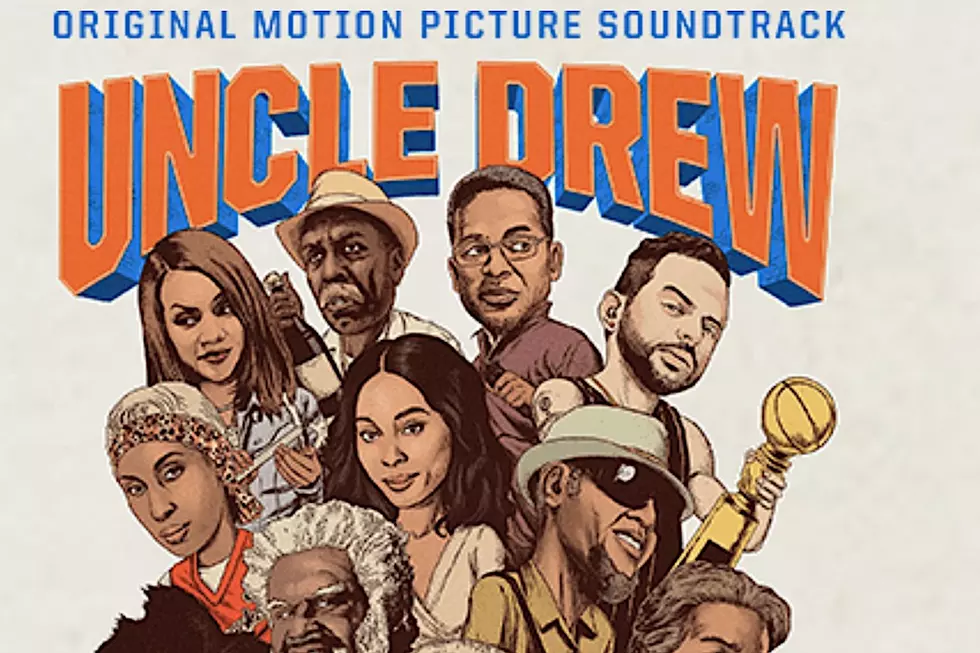
A$AP Rocky vs. Aesop Rock – This or That?
You can’t find two more disparate rappers in the entire world than A$AP Rocky and Aesop Rock. Yes, they both rhyme fast at times, but that’s about the only similarity that the former Def Jukie and the 'Goldie' rapper have in common.
One is white, bearded, bug-eyed, and lacking any mainstream aspirations; the other is braided, blunted, fashionable and utterly wavy. This is the reason why A$AP Rocky’s name was so funny when he came out -- his doppelganger couldn’t be more different, and he probably never f---ed with Definitive Jux anyway.
Listen to Aesop Rock's 'Daylight'
In the days when left field indie rap Def Jux, Rhymesayers and Anticon were enjoying high volumes of loyal fans, Aesop Rock was the messiah for not just underground rap, but dense, elaborate, tongue-tying abstract rap -- the kind of music better suited for art class rather than street math. ‘Appleseed’ got him started, ‘Labor Days’ cemented his throne, and by the time he dropped ‘Fast Cars, Danger, Fire and Knives,’ it included an 88-page booklet containing every single lyric to every single song he had released up until that point. Anyone who listened closely enough had to get their hands on it because even they couldn’t always make out what he was saying in his rhymes.
Listen to Aesop Rock's 'None Shall Pass'
Alongside his trusty producer Blockhead, Aesop Rock spun webs in his verses, making the bleak oblique and causing backpacker fans to think about his raps long enough to distract them from the guilt that repelled them from mainstream rap. He symbolized everything that nerds wanted in over-poetic rap. Months after a nervous breakdown in 2001, the rapper, born Ian Bavitz, released his magnum opus that focused on the grueling, spirit-diminishing work that the American economy had imposed upon him and millions like him. It made sense that those who wanted nothing to do with society at large drifted towards his music.
Listen to A$AP Rocky's 'Toast to the Gods'
A$AP Rocky only wears designer backpacks, his money’s gotten longer and his clothes have gotten weirder. While his derivativeness floated past the radar of most when ‘Purple Swag’ and 'Peso’ hit the blogosphere, it’s not altogether clear that he wouldn’t have popped earlier if more people had known about his screwed up Southern influences via Houston and Memphis -- he just happened to come at the right time. With the A$AP architect Yams crafting his syrupy, gold-toothed image, Rocky’s battlefield was Tumblr and internet message boards, where culture was being regifted to tons of young kids. They needed their own rap star, and Rocky was there to show out.
Listen to A$AP Rocky's 'Pretty Flacko'
His album, 'Long. Live. A$AP,' didn’t please nearly as many people as his mixtape did, but it didn’t need to -- he had already established his pull amongst tastemakers and cleared the way for A$AP Ferg to step in after him. It’s obvious that he took elements of Lil B’s persona and latched onto them himself, appropriating weird anti-culture and making it cooler than anyone else could.
The Harlem, N.Y., native was the perfect poster boy for the amalgamation of hypebeasts, lean sippers and forum users. Even his somewhat androgynous appearance was excused under the guise of breaking down gender barriers, approved under the domain of “limitless swag” that Kanye West helped usher in with his Watch the Throne tour wardrobe.
Aesop Rock was never really about appearance, but a lack of one. His music spoke volumes, perhaps too many, and left little room for marketing techniques to angle him as anything other than a rhyme riddler. Seeing how he flourished around the same time that Lil’ Jon began getting hot, it’s easy to see how rap’s Red Sea split down the middle and either ran to the dancefloor or clutched their Walkmen. He was the answer to the question that many rap fans had when they heard Lil’ Jon yell “Aaww, skeet skeet” -- how did I get here?
Today, anti-culture is the new culture. Being cool means defining yourself against what “those lames” deem hot right now, because obviously you have very advanced knowledge of things most other basic human beings can’t comprehend. Rocky helps perpetuate that. It’s not that Aesop Rock didn’t have an ideological thrust to his music, it was just more organic.
More From TheBoombox


![A$AP Rocky Pays Homage to Harlem in ‘A$AP Forever’ Video [WATCH]](http://townsquare.media/site/625/files/2018/04/ASAP-Rocky-ASAP-Forever-Video.jpg?w=980&q=75)
![Annual A$AP Yams Day Concert Shut Down After Violence Erupts [VIDEO]](http://townsquare.media/site/625/files/2016/01/asap-yams.jpg?w=980&q=75)


![A$AP Rocky Launches Signature Line of Vape Pens [PHOTO]](http://townsquare.media/site/625/files/2017/07/ASAP-Rocky-Signs-With-Under-Armour.jpg?w=980&q=75)
![G-Eazy Enlists A$AP Rocky and Cardi B for Boastful Track ‘No Limit’ [LISTEN]](http://townsquare.media/site/625/files/2017/09/G-Eazy-No-Limit-ASAP-Rocky-Cardi-B.jpg?w=980&q=75)
![Playboi Carti and A$AP Rocky Shoot Their Shots in ‘New Choppa’ Video [WATCH]](http://townsquare.media/site/625/files/2017/08/Playboi-Carti-ASAP-Rocky-New-Choppa-Video.jpg?w=980&q=75)
